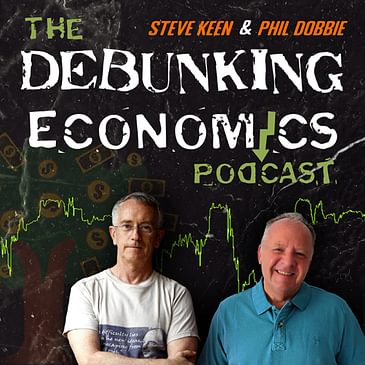The UK Debt Office has started selling bonds to retail investors through the primary market Previously the only way you could buy government bonds was through financial institutions, through ETFs, for example. The reason giving for opening it up to consumers is that it will allow them to “contribute more significantly to meeting the overall financing requirement”. Hat makes it sound like they are concerned that there won’t be sufficient demand from institutional investors, including the banks. Steve Keen says what they probably don’t understand is this move will actually shrink the amount of money in circulation. That’s probably a bad move in a stagnant economy. To make matters worse, they ar ehell bent on selling off the government’s shareholding of the Nat West group, which will have a similar impact. Listen in to find out how and why.
Hosted on Acast. See acast.com/privacy for more information.

